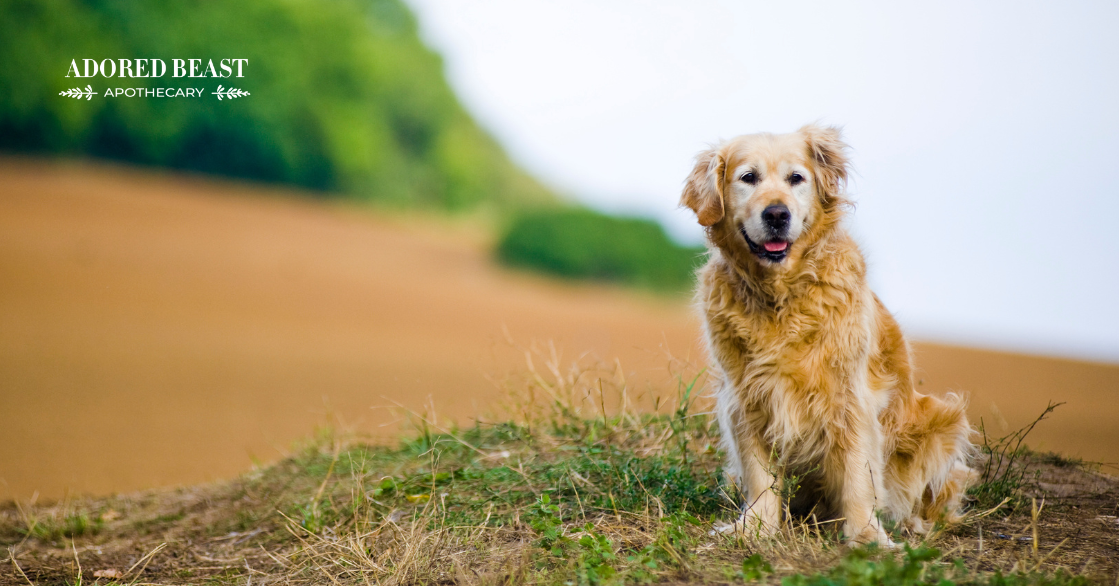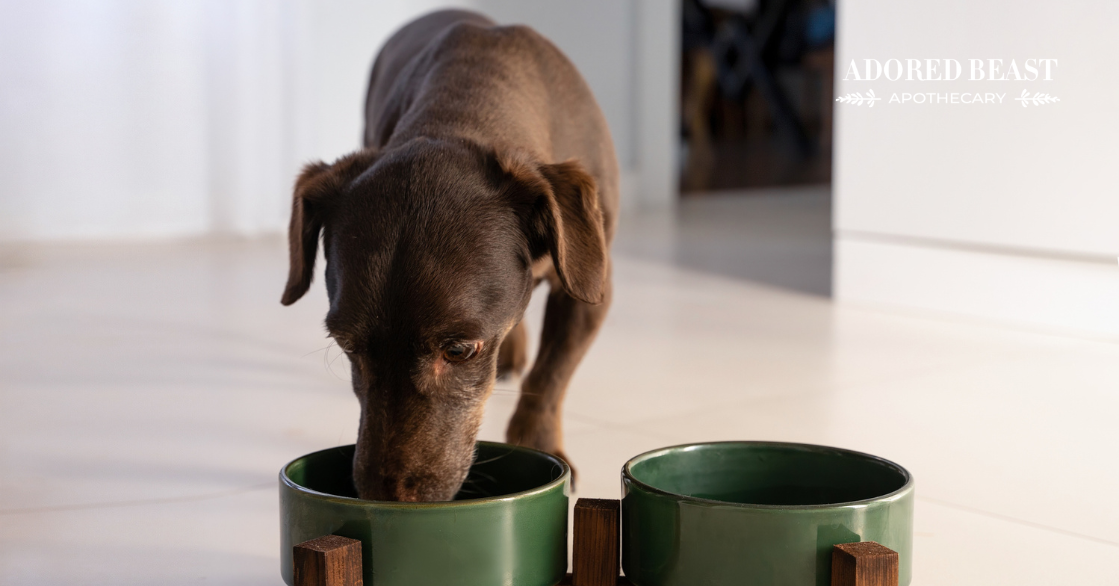In our house, we have a 5 year old and a 14 year old. That means a wild and crazy one still in her younger years, and a beloved senior gal who moves just a little slower. Ok, a lot slower, but that’s ok.
While our dogs’ health is important at any age, as they get older, they often need a little more support – and sometimes that support is different. Thankfully, there are plenty of ways we can deliver that to our older canine companions. When it comes to caring for a senior dog, there are some important things to think about. For Senior Pet Month, we’re talking about all the things we can do to keep them healthy and happy and feeling loved as they age.
Tips to Support a Senior Dog
Consider all of these things when it comes to caring for a senior dog.
Maintain Activity
Senior dogs need exercise. Like us, if they don’t move it, they lose it. They may just need it to be adjusted. Our senior husky with arthritis still gets her daily walks. They’re not as long as they once were, and we don’t go nearly as fast, but getting her moving helps keep her from getting stiff and uncomfortable.
Change activity to meet your dog’s abilities. Really pay attention as you exercise. Many dogs won’t stop, even if they’re in pain. If they seem stiff or sore afterwards, perhaps switch things up. Instead of one long walk, break it up into shorter jaunts. Instead of intense activity like frisbee in the backyard, consider some scent training, or puzzle games to keep the body moving and the mind sharp. Or hop in the car (lift if you need to), head to a new place, and just let your dog sniff. Being in a new environment with different smells is so stimulating – more so than any other activity! It’s like letting them read the newspaper!
Watch the Weight
As activity level decreases, weight can go up if we don’t watch it carefully. And extra weight puts added stress on the joints and the organs. You want to be sure you’re keeping an older dog slim and trim.
Pay attention to those extra snacks and treats, and adjust the amount of food you’re feeding if you need to. If your pup needs to shed a little holiday weight, take it slow – too much too soon can be really detrimental. Look for treats with low calories – that way you’re not taking the treats away. As an example, if you’re feeding 15 pieces a day, you could start to change it to 7 regular and 7 really low calorie treats. Dip broccoli in tripe juice, or carrot in bone broth – then they feel like they’re still getting the good treats, but it’s much lower in calories.
Environmental Adjustments
As our pups age, we need to pay attention to what they can do. Sometimes that means making adjustments in their environment to better match their abilities. An important part of caring for a senior dog is making sure their environment is as comfortable for them as possible.
For example, if stairs are tough for your pet to manage, reduce the amount they need to use them. Consider building a ramp so that stairs don’t need to be used at all. Or, if your pet seems a bit unstable on tile or hardwood foods, invest in some carpets for better traction. Even inexpensive yoga mats work for this! You can get really pretty ones with designs and colours on Amazon (and they’re easy to wipe off). By paying attention to our animals’ movements, we can make sure the house matches their comfort level.
In Julie’s opinion, if you have a dog with hip dysplasia, arthritis in their back or spine, and soreness – raise their water bowls just a little – to where they can comfortably lower their head. Or get them used to lying down and eating. Our girl gets her dinner on her bed – it’s a very natural position, and it’s much more comfortable. You want to make sure they continue eating and drinking, so make this as easy for them as possible.
Cooling mats are also good, particularly in the summer. Even in the winter if they are warm. They need the air flow. A small circulating fan can really make a night and day difference for their comfort.
If your dog can’t see as well (many older dogs start to lose their vision), plugging in a salt lamp or even a regular night light at night can help reduce anxiousness. We leave the light on our stove on the lowest setting on at night for our girl.
Keep Up With Grooming
As our pets get older, it can sometimes be tougher for them to groom themselves as well as they once could. If they aren’t as flexible, they may not be able to reach areas that need attention. This is especially important when it comes to nails. If your pet doesn’t walk as much as they once did, the nails may not get filed down as well. Make sure you keep up with regular nail trims. You don’t want them to get too long – they can dig into paw pads and hurt and it can really affect their stability.
Supportive Supplements
As our dogs age, certain supplements can be incredibly important.
- Gut Support – Supporting the gut, and thus the immune system, is crucial at any age, but particularly as our dogs get old. Pre and probiotics, especially species-specific ones, are ideal for this.
- Joint Support – Omegas, homeopathy, and things like collagen are really good for joint support, both for relief of pain and to keep the joints strong and healthy.
- Brain Support – Medicinal mushrooms are a great addition to support the brain as are omegas. Turkey tail mushrooms, and especially lion’s mane mushrooms, are both incredibly beneficial.
- Cell Support – Antioxidants like phytoplankton can really help the body fight free radicals and oxidative stress, both of which are linked with cancer.
Not all dogs age the same, but they all get old at some point. Caring for a senior dog is a special job! Aging is the natural process of things and every pet parent should be prepared for it. Small changes can make a big difference in keeping our senior dogs as healthy and happy as possible, for as long as possible!












